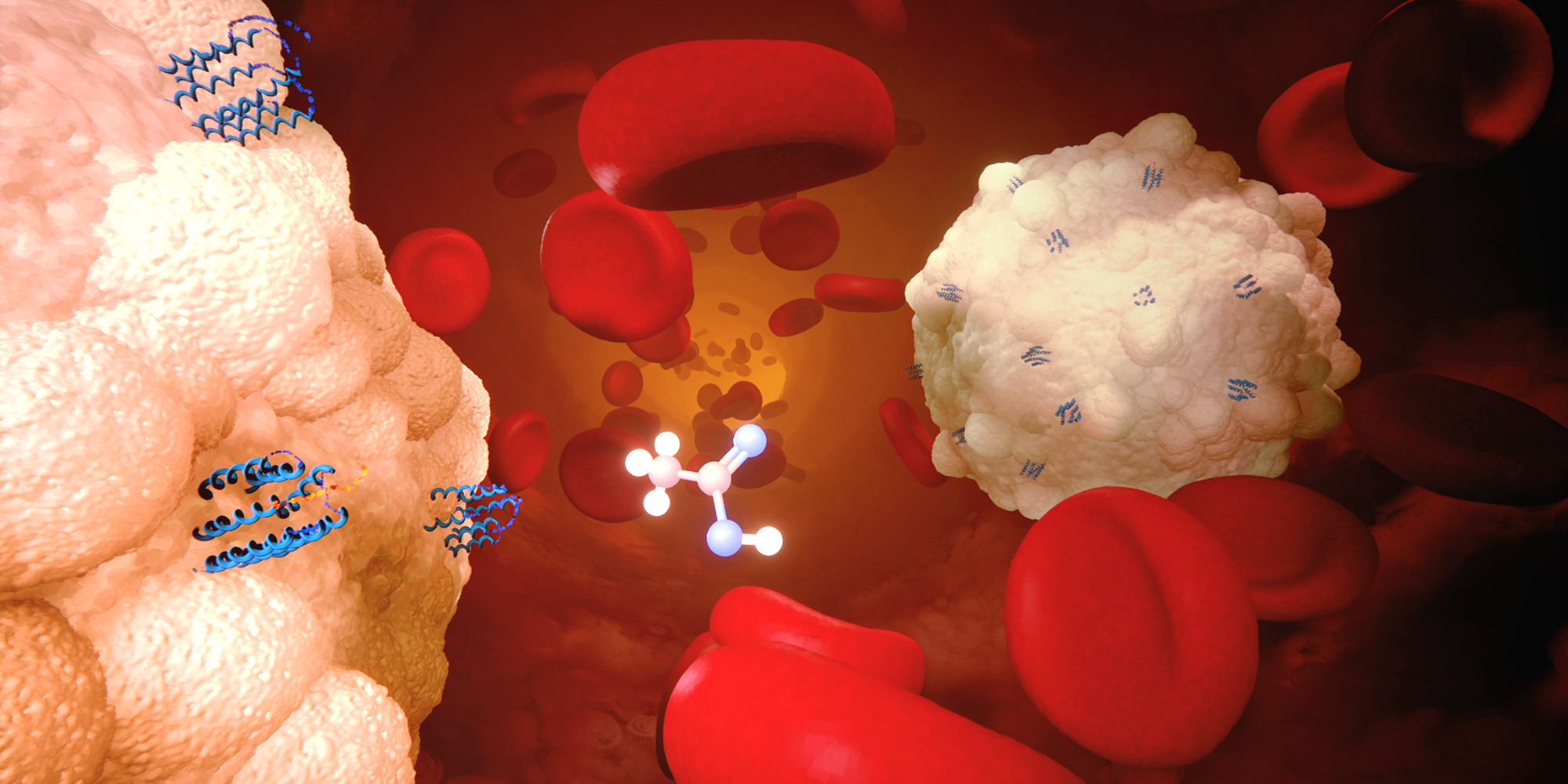Press Releases Archive
30.07.2021
Tübingen research team develops new strategy against sepsis
Acetate stimulates the body's immune defense – Severe bacterial infections alleviated in mice
Some cases of bloodstream infections are mild, but many have a fatal outcome – the reasons for these differences have remained in the dark despite decades of research. Researchers from the Cluster of Excellence “Controlling Microbes to Fight Infections” (CMFI), the Interfaculty Institute of Microbiology and Infection Medicine Tübingen (IMIT) at the University of Tübingen and the German Center for Infection Research (DZIF) have now discovered a possible cause and on this basis developed a new experimental strategy to combat bacterial sepsis. The therapeutic approach against life-threatening sepsis does not require the use of antibiotics and instead relies on stimulating the body's immune defense by administering the active substance acetate.
As a result of a local infection, bacteria can enter the bloodstream, which can lead to life-threatening sepsis (colloquially known as blood poisoning) and septic shock with organ failure. Among the most common causes of such a sepsis are methicillin-resistant Staphylococcus aureus bacteria (MRSA) that have developed resistance to many of the common antibiotics.
The research team led by Professor Andreas Peschel and Dr Dorothee Kretschmer was able to show that the body's immune defense against staphylococci is strengthened by administering the acetic acid salt sodium acetate, enabling the body to cope better with the severe infection. In experiments with mice that received acetate via their drinking water or an injection, the course of bacterial sepsis was significantly improved.
A bacterial infection is fought by our body with the help of white blood cells. The most common white blood cells in the bloodstream are known as neutrophil granulocytes that are able to detect, ingest, and destroy pathogens. On their surface, neutrophils have various pattern recognition molecules, receptors to which bacteria-specific components bind, thus signaling the presence of bacteria. One such component is acetate, formed by many bacteria, especially by invaded pathogens such as Staphylococcus aureus and by intestinal bacteria in the digestion of food. Acetate is detected by the GPR43 receptor on the neutrophils.
Acetate as activator
"In our study, we were able to investigate for the first time in detail the effects of binding the acetate to neutrophils. It seems to be an amplifier that “wakes up” the granulocytes, so to speak, and puts them on alert," Dorothee Kretschmer reports. "Acetate has a regulatory effect through the activation of the GPR43 receptor so that an adequate and targeted endogenous immune response can occur on several levels." If granulocytes are put on alert prior to an infection, they can react more effectively to the invading pathogens. They then migrate faster from the blood to the infection site, ingest more bacteria, and produce oxygen radicals that kill the bacteria. As a result, the bacteria were less able to multiply and distribute to the organs during a subsequent sepsis caused by the bacterium Staphylococcus aureus.
In experiments, the research team demonstrated that acetate injection or the administration of acetate-containing drinking water led to an improved immune response in mice. "In the case of a subsequent sepsis caused by infection with staphylococci, the bacteria could be killed faster and more efficiently, thus preventing a fatal course," Kretschmer explains. “The mice recovered more quickly, evident for instance by a faster weight gain.” As Katja Schlatterer, the study’s lead author from the participating Cluster of Excellence CMFI reports: “Interestingly, we were able to observe the same effect when we administered acetate only after the onset of sepsis. This led in the same way to an improved immune response and infection clearance.” The research team considers it conceivable that acetate could be used in humans for both the prevention and the treatment of sepsis. As they point out, acetate is already being used in the clinical field, for example as an acid-base regulator in infusions, administered in the event of fluid loss, with the compatibility in humans thus already being proven.
The study, published in the journal Communications Biology, involved scientists from the Cluster of Excellence “Controlling Microbes to Fight Infections” (CMFI), the Interfaculty Institute of Microbiology and Infection Medicine Tübingen (IMIT) at the University of Tübingen and the German Center for Infection Research (DZIF).
Publication:
Katja Schlatterer, Christian Beck, Ulrich Schoppmeier, Andreas Peschel, Dorothee Kretschmer: Acetate sensing by GPR43 alarms neutrophils and protects from severe sepsis. Communications Biology 4:928, https://doi.org/10.1038/s42003-021-02427-0.
Contact:
Prof. Dr. Andreas Peschel
University of Tübingen
Interfaculty Institute of Microbiology and Infection Medicine Tübingen (IMIT)
Cluster of Excellence “Controlling Microbes to Fight Infections” (CMFI)
Telephone +49 7071 29-74636
andreas.peschelspam prevention@uni-tuebingen.de
Contact for press:
Eberhard Karls Universität Tübingen
Public Relations Department
Dr. Karl Guido Rijkhoek
Director
Antje Karbe
Press Officer
Phone +49 7071 29-76789
Fax +49 7071 29-5566
antje.karbespam prevention@uni-tuebingen.de
www.uni-tuebingen.de/en/university/news-and-publications

